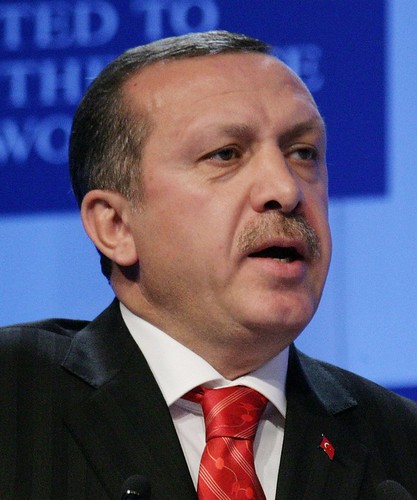With the conflict in Ukraine having moved beyond Crimea into the eastern part of the country, and with the chilling prospect of a Russian intervention seemingly looming as the Ukrainian military begins to make progress against the separatists, a term thought to be a relic of the past has found its way back onto the lips of writers, journalists, academics and politicians: imperialism. More to the point, many have called Russia’s involvement in Ukraine imperialism in its most classic form, with places like Mariupol, Slavyansk, and Donetsk becoming household names, at least among geopoliticos. What’s perplexing, however, is that people seem to be surprised by Russia’s apparently imperialistic ambitions to disrupt, sever, and ultimately annex its neighbour a piece at a time.
Monthly Archives: July 2014
My Europe? Your Europe? Or OUR Europe?
As a Canadian born of Turkish parents who has studied and lived in Europe, I’ve started thinking of myself as a truly global citizen. But I’ve also never forgotten that I am who I am because of those who raised me and where I was raised. As I built a new life for myself at the heart of Europe in Brussels (though I have since returned to Canada), I often think about the experiences my parents must have lived through as immigrants to Canada from Turkey in the 1970s. And, of course, I can’t help comparing their experiences in Canada, my own Canadian experience as the son of immigrants, and my new experiences in Belgium as someone who strove to become a new European of a Turkish-Canadian background.
Who’s the Real Kingmaker in Turkey?
The growing crisis in Iraq and Syria, with the terrorist organization ISIL (or ISIS) and the fear it has been inspiring has been the focus of much of the world’s attention. With the failure of the US-trained and –equipped Iraqi army in combating this threat to regional stability, the surprise has been the Kurdistan Regional Government (KRG) in northern Iraq and its fighters, the peshmerga. Almost overnight, the KRG has managed to expand their territory to include the long-sought-after city of Kirkuk, and more importantly has emerged to play a pivotal role in determining the future of both Iraq AND Syria.
If the Kurds of Iraq are being portrayed as the kingmakers of that country, so too are the Kurds of Turkey. Almost slipping under the radar, Turkey, one of the region’s most powerful economies and military powerhouse, is about to enter into its first ever election to choose a president by popular vote, scheduled to be held on August 10, 2014 (with a potential runoff vote on August 24th). Oddly enough, although everyone expects him to run for the position, Turkey’s notoriously short-tempered Prime Minister Recep Tayyip Erdoğan has not yet officially entered the race. Turkey’s current President Abdullah Gül doesn’t look set to run for a second term, effectively opening the door for Erdoğan, at least from within the ruling AKP. But Erdoğan’s pugnacious style has been hurting him at the polls and internationally, little by little, with foreign policy gaffes, polarizing domestic politicking, and allegations of corruption and subsequent alleged cover-ups. Having already alienated many of the more liberal voters who had originally voted for his party over the past 12 years, most clearly demonstrated by the widespread Gezi protests during the summer of 2013, and with his support seeming to have been distilled to its core in the March 30, 2014 local elections, Erdoğan has been courting the country’s Kurdish voters in an effort to make up the difference in his votes to secure the 50%+1 that he’d need to win a first-round knockout victory.
So the Kurds of Turkey, as heterogeneous as they are as a community, seem set to be the kingmakers in Turkey. So says much of the media that’s covering the election, in any case. The key element that most pundits seem to miss is that Erdoğan’s success over the past 12 years has been as much due to his ability to divide his opponents’ votes or at least play off existing divisions, as his own ability to use the tense divisions in Turkish society to win the votes of the historically disaffected and marginalized in the country. Continue reading






